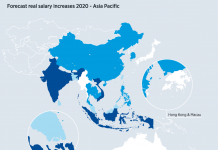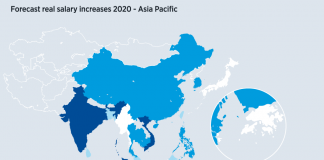The COVID-19 crisis has ushered in a new era in the world of work that is impacting both jobseekers and hiring organisations. Speaking on behalf of Hays consultants who are on the ground interacting with businesses and candidates every day, Tom Osborne, Managing Director of Hays in Malaysia shares 8 trends that are currently impacting recruitment in Malaysia:
1. Remote working is here to stay – In what is being called the world’s largest experiment in remote working, there is a growing sentiment amongst the workforce in favour of flexible working options even beyond the crisis. “While some critical roles still need a physical office, the work life balance offered by flexible working has set a precedent for the months to come. It is likely that more businesses will explore these options on a permanent basis, offer flexible timings to avoid peak hours or look at adopting hybrid working models that have some employees working remote and others in the office on a rotational basis,” says Tom. More MNCs are also adopting remote onboarding processes with training programs incorporated in them.
2. Commercial roles impacted – With remote working fast becoming the norm and face-to-face meetings at a minimum, headcount for commercial roles are being impacted in varying degrees. “Sales roles that operate with relevance to the current crisis such as those within Insurance or the Life Sciences are still seeing some growth. However, demand still varies within industries as well,” says Tom. In the Life Sciences, for example, some sales or product specialists are still able to conduct field visits but sales reps for non-COVID related pharmaceuticals are facing limited market access, thus reducing hiring demand in the area.
3. Digital revolution spurs IT demand – “As more companies ramp up their IT infrastructure, areas such as cloud migration, application development, automation and network connections are seeing sustained demand,” says Tom. “This will likely be an ongoing trend as more organisations go digital in an effort to function more efficiently, both internally and externally, and accommodate flexible or remote working arrangements.” Automation and Data Science have also seen a massive uptake and will continue to do so in coming years, as these functions can help companies automate redundant processes and make efficient use of resources amidst uncertainty, he adds.
4. Organisational design increasingly desired – “Many businesses have had to review their current cost over productivity and analyse if their existing workforce is at its optimum in the current climate,” says Tom. “Candidates with strong experience in workforce optimisation and internal recruitment are in high demand to support these projects and to ensure both business interests & staff wellbeing are well managed.”
5. Legal and compliance hiring sees an uptick – “The legal sector has shown resilience in the last few months, owing to the increasing business need for legal representation, risk assessment and mitigation during times of crisis,” says Tom. “The demand for e-commerce related legal and compliance roles saw an uptick during Malaysia’s MCO, particularly within the FMCG and TMT industries as the demand for consumer goods purchased online increased.”
6. Banking & Financial Services outlook is cautious but optimistic – “While many banks and financial took a cautious approach in recent months, hiring has continued for business-critical roles Banks have also been quick to adapt to remote ways of working, with many implementing digital onboarding processes and looking at flexible working arrangements as a permanent fixture.” There has been a surge in demand for Governance related functions, he shares, particularly in Risk and Compliance, as well as Research functions. “Hiring for front-liner roles is also expected to kick off as movement restrictions ease,” says Tom.
7. Finance function sees accelerated digitalisation – “The Accounting & Finance function has seen accelerated digitalisation as remote working and onboarding continues to impact the spectrum of finance,” says Tom. “CFOs are now seeking IT skills when hiring accountants owing to the value they will bring in the new digitised world of work. Dashboard reporting will also be a key skill wanted to ensure financial transparency across the business during remote working.”
8. Shares Services will sustain hiring – “SS remained an area of strength in recruitment even during Malaysia’s MCO, owing to the country’s popularity as the location of choice for Multinationals to set up their Shared Service Centres (SSC),” says Tom. “While the level of growth in the sector may not be as zealous as before, it is likely to be sustained as companies globally look to cut costs at this time. The value proposition of having a SS function will appeal to them more for this reason, owing to Malaysia’s lower overhead costs when setting up a business and its abundant, multilingual workforce, which is an essential requisite for SSC locations.”
“While the recent period of crisis has been challenging for both job seekers and organisations alike, the direction of its resulting changes remains definitively positive. As we move towards a more digitalised workplace and expanded, hybrid functions, a key strategic priority for businesses at this time should be to ensure their employees and managers are equipped with the right skills to not just endure but thrive in the new world of work,” he concludes.



















